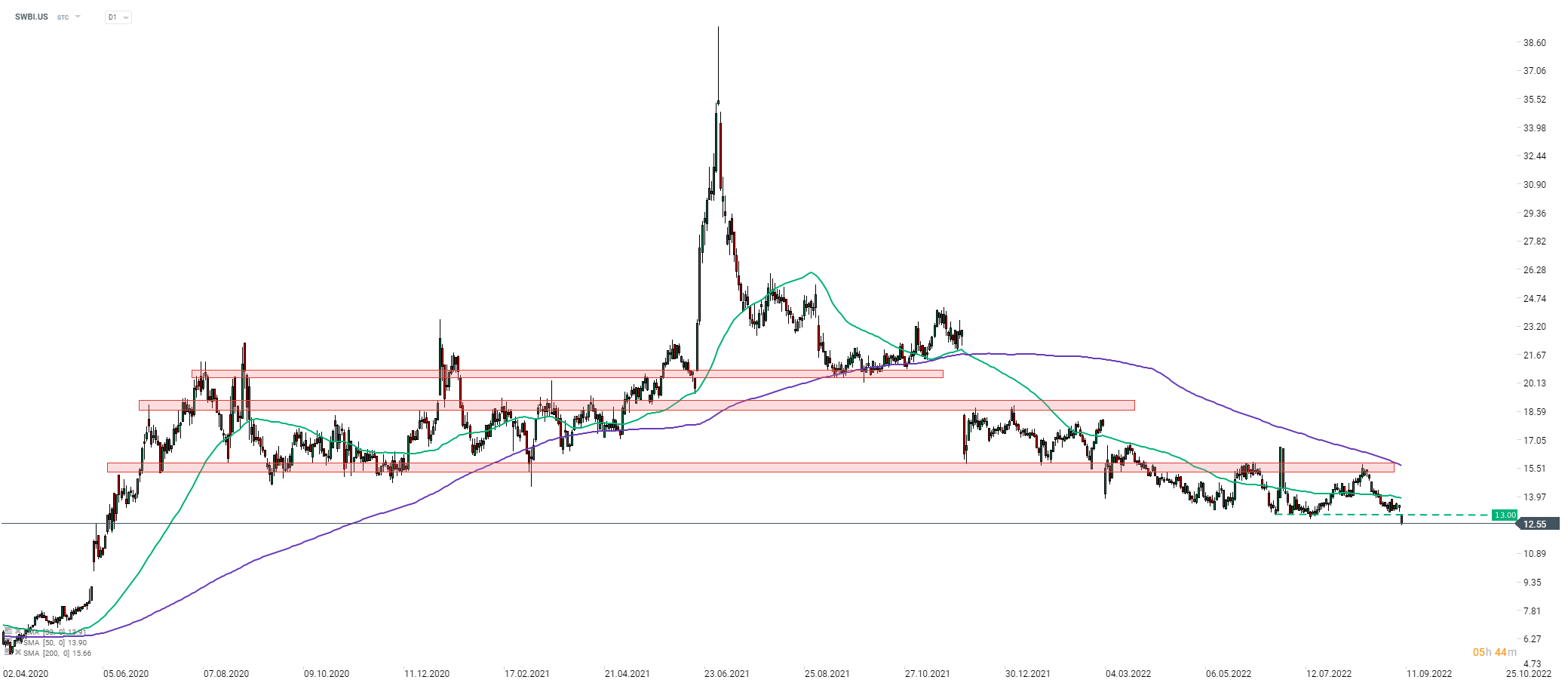Smith & Wesson Brands (SWBI.US), US gun maker, trades over 6% lower today following the release of a disappointing earnings report for fiscal-Q1 2023 (calendar May-July quarter). Adjusted EPS from continuing operations reached $0.11 (exp. $0.23) while net sales from continuing operations came in at $84.4 million (exp. $129.9 million).
Although results were weaker than a year-ago, company's executives said they are pleased with them as gross margin came in at 37.3% - more or less in-line with fiscal-Q1 2020 (calendar May-June 2019). Management of Smith & Wesson noted that the retail boom in firearm sales that could be observed over the past 2 years is fading and demand returns to pre-pandemic patterns. Nevertheless, company said that it is pleased with net profitability exceeding pre-pandemic levels in both relative and absolute dollar terms and expects the remainder of the year to be strong as well. However, those comments failed to ease investors' concerns as one can see on the chart above.
 Shares of Smith & Wesson Brands (SWBI.US) plunged below mid-July low at $12.75 and reached the lowest level since June 2020. Company acknowledged that the retail boom in firearm sales of the past 2 years is ending but expects profitability to remain above pre-pandemic levels. Source: xStation5
Shares of Smith & Wesson Brands (SWBI.US) plunged below mid-July low at $12.75 and reached the lowest level since June 2020. Company acknowledged that the retail boom in firearm sales of the past 2 years is ending but expects profitability to remain above pre-pandemic levels. Source: xStation5

Palo Alto acquires CyberArk. A new leader in cybersecurity!

US OPEN: Blowout Payrolls Signal Slower Path for Rate Cuts?

Market wrap: Oil gains amid US - Iran tensions 📈 European indices muted before US NFP report

Economic calendar: NFP data and US oil inventory report 💡


